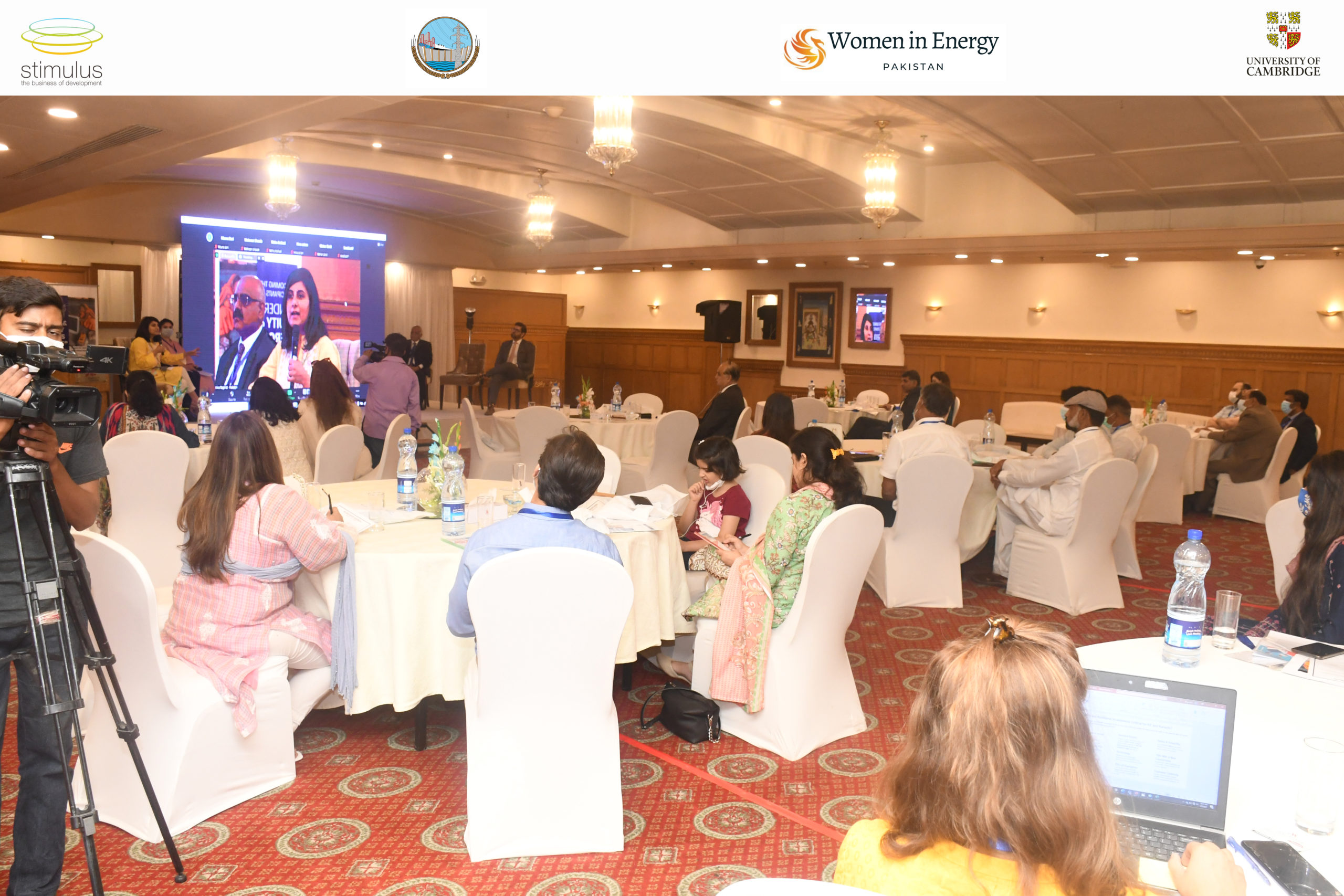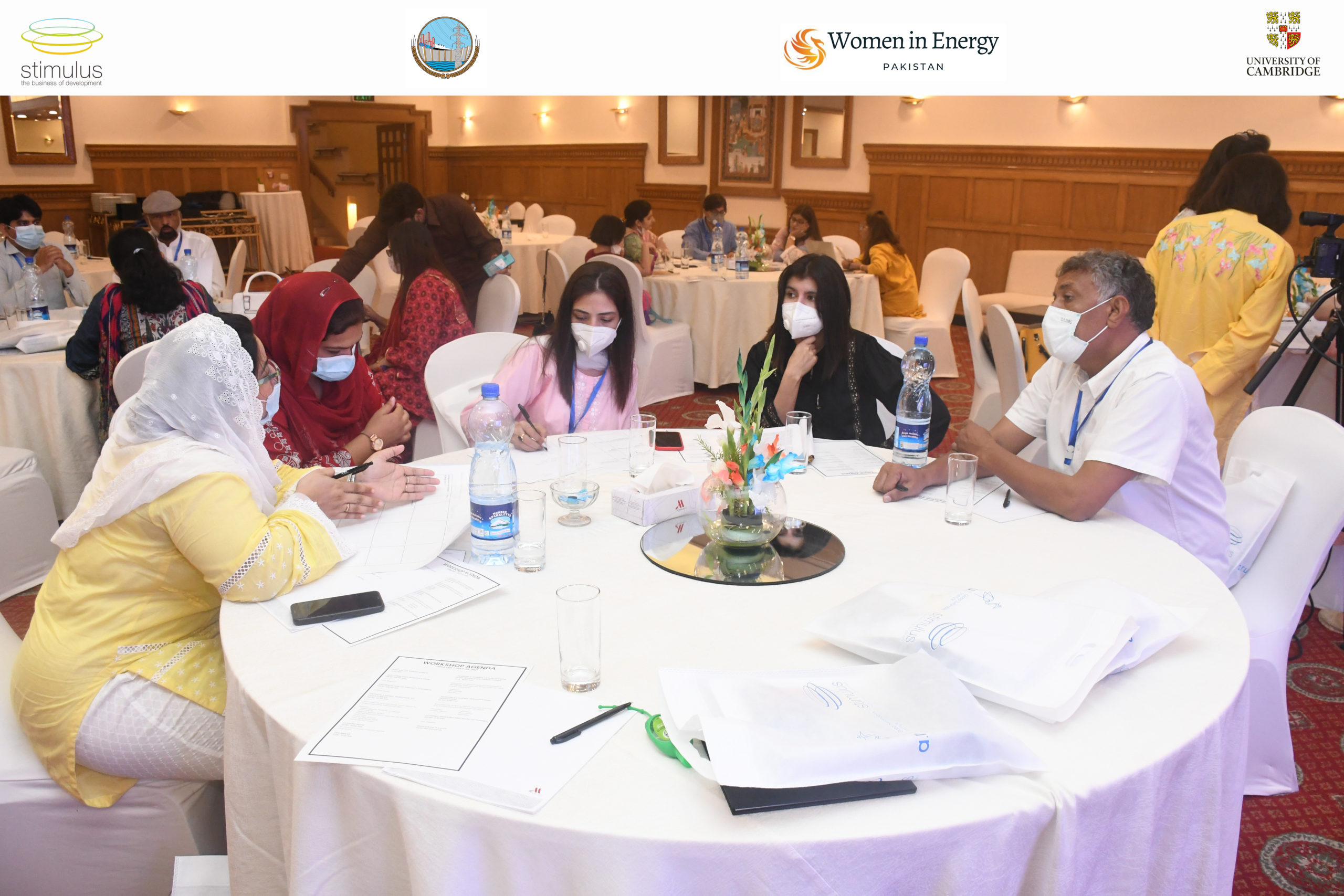Rihab Khalid is the 2020 Isaac Newton Trust Research Fellow at Lucy Cavendish College, University of Cambridge and will be affiliated with CRASSH during the period of her three-year fellowship.
Q. You joined CRASSH last year as a Research Fellow. Could you tell us a little bit about what you are working on during your fellowship?
This past year, I was Co-I on the Global Challenges Research Fund (GCRF) project: ‘Gender equity and energy access in the Global South’, headed by the Global Sustainability Institute at Anglia Ruskin University. The one-year project aimed to investigate what the UN Sustainable Development Goal (SDG7) of ‘access to affordable, reliable, sustainable and modern energy’ means to the professionals working on matters of energy access, and its implications for gender equality (SDG5), in the Global South. Through collaboration with 11 partners across six countries, the project undertook 86 semi-structured interviews across four countries: Nigeria, Ghana, India and Pakistan. I acted as the project lead for Pakistan. Collaborating with Women in Energy (WiE) Pakistan and University of Management and Technology (UMT), Lahore, I conducted interviews with energy sector professionals across Pakistan and led the Pakistan policy brief. I was also involved in the data analysis and am currently in the process of writing up the findings from the project into co-authored journal publications.
As part of the project, I also organised a country-wide gender-sensitising workshop together with local partners, inviting energy-sector professionals across Pakistan. The workshop provided a platform to share the project findings, invite a response on the policy brief from an expert panel, and conduct interactive sessions with participants to identify key areas for intervention, generate dialogue and develop an understanding of best practices for gender mainstreaming in energy policy and practice.


Further details of the project and workshop event can be found on the project website.
Q. What drew you to your research initially and what parts do you find particularly interesting?
My interest in this area was triggered by the desire to solve the very real energy issues faced by my own community where I lived in Pakistan and how energy shortages affect the lived experiences of different people. Continuing down this path, my research journey progressed organically. I started with a techno-economic study of energy efficiency in building materials and appliances to reduce energy demand during my Masters. I went on to investigate energy consumption as an integral part of social practices and material arrangements that are mediated by the socio-cultural context, as part of my PhD. Currently, I am taking a socio-technical and feminist approach to investigate the underlying systems and processes that determine sustainable, equitable and just energy transitions.
The most interesting aspect of my research is its interdisciplinary nature that combines insights and concepts from across architecture, engineering, urban studies/geography, and sociology. I get to conduct research with multidisciplinary teams, working with various qualitative and quantitative research methodologies to address critical overarching questions about energy access and demand, gender equity and sustainable housing, and contribute to knowledge in each field. One of the best things about doing research in Cambridge is the opportunity it provides for interdisciplinary learning, networking, and collaboration, such as through CRASSH and the Energy Transitions@Cambridge Interdisciplinary Research Centre.
Q. Are there any people that have impacted your research in particular?
For me, understanding energy consumption through the lens of Social Practice Theory, specifically as conceptualised by contemporary practice theorists Elisabeth Shove and Kirsten Gram-Hanssen, completely revolutionised my approach to energy demand management. It opened an entire new area of research which had been unknown to me in the field of architecture and engineering. I also greatly admire the writings of sociologist Yolanda Strengers and energy researcher Kathryn Janda and their often witty and provocative take on energy and user-centred design of technologies and buildings respectively.
Within architectural practice, I have been inspired by the influential work of Architect Kamil Khan Mumtaz who takes an Islamic philosophical and regionalist approach in design. I am a strong advocate of indigenous knowledge formation through design as seen in the influential social housing projects of Architect Yasmin Laari, the first female architect of Pakistan.
I have only recently started exploring the intersections of gender, energy, and space use and have barely scratched the surface of some of the feminist literature in the field, which has proven to be revelatory. I am currently reading some of the fascinating writings of Caroline Moser, Chandra Mohanty, and Naila Kabeer and very much look forward to reading more in the field of feminist geography.
Q. Could you tell us about your most recent publication?
I have recently published a paper in Energy Research and Social Science, together with my colleague Maiss Razem (PhD Architecture), on the nexus of gendered practices, energy, and space use, that presents a comparative study of middleclass housing in Pakistan and Jordan. This was particularly special for us both as we contribute to the gap in knowledge produced by Muslim women from the South on lived experiences of Muslim women in the South.
In this paper, we explore women’s differential domestic energy and space use in everyday domestic practices. We demonstrate that this gendering of domestic practices occurs in three ways: First, women’s energy consumption is contingent on the spatial affordances of housing and community developments that are quite often based on socio-culturally derived gendered divisions of private and public spheres. Second, women are mostly responsible for flexibly shifting, shedding and managing energy consumption in household practices and, as such, become key change-agents in domestic demand management. Finally, different women have varied and differential agency depending on their roles as wives, mothers, caregivers, mothers- and daughters-in-law, income-generators, and housemaids, etc. and so cannot be homogenised into a unified category. Based on these findings, our study highlights the limitations of current ‘gender-neutral’ and ‘gender-binary’ approaches in housing and energy and calls for greater socio-cultural understanding of gender relations and intersectional agencies for improved energy equity and sustainability.
• Rihab Khalid’s story in This Cambridge Life: The energy researcher who wants to build better to consume less.
• Find out more about Fellowships at CRASSH.

